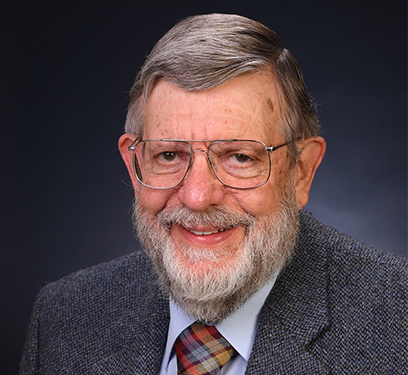Nobel Prize-winning physicist William Phillips – The quantum reform of the modern metric system
Talk details
- Date: 5 May 2024
- 1 p.m. (ET)
- Location: Zoom
- Video recording
Talk abstract
From the speaker:
“The metric system, now officially known as the International System of Units (SI), was born with the French revolution. It has recently undergone its most revolutionary reform since that birth. Famously, the kilogram is no longer defined as the mass of an artifact, the International Prototype Kilogram, but rather is now a quantum concept, defined by fixing the value of Planck’s constant. In fact, all of the base units of the SI are defined by fixing the values of natural constants, and the SI now has a distinctly quantum flavor. The quantization of charge allows us to fix the charge of the electron, defining the ampere as a certain number of electrons per second. The unit of temperature, the kelvin, is no longer based on the triple point of water, but on the thermal energy of the atomic/molecular components of matter, by fixing the value of Boltzmann’s constant. The unit of time has long been quantum, but its impending re-definition will make it even more so.”
Presenter
William D. Phillips received a bachelor’s degree in physics from Juniata College in 1970, and a PhD from the Massachusetts Institute of Technology (MIT) in 1976. After two years as a Chaim Weizmann postdoctoral fellow at MIT, he joined the National Institute of Standards and Technology (NIST) – then known as the National Bureau of Standards – to work on precision electrical measurements and fundamental constants. There, he initiated a new research program to cool atomic gases with laser light. He founded NIST’s Laser Cooling and Trapping Group, and later was a founding member of the Joint Quantum Institute, a cooperative research organization of NIST and the University of Maryland that is devoted to the study of quantum coherent phenomena. His research group has been responsible for developing some of the main techniques now used for laser-cooling and cold-atom experiments in laboratories around the world. Their achievements include the first electromagnetic trapping of neutral atoms; reaching unexpectedly low laser-cooling temperatures, within a millionth of a degree of Absolute Zero; the confinement of atoms in optical lattices; and coherent atom-optical manipulation of atomic-gas Bose-Einstein condensates. Atomic fountain clocks, based on the work of this group, are now the primary standards for world timekeeping and lattice-trapped atoms are among the likely candidates for future primary frequency standards. Among the group’s current research directions are the use of ultra-cold atoms for quantum information processing and quantum simulation of important physical problems.
Phillips is a fellow of the American Physical Society, the American Association for the Advancement of Science, and the American Academy of Arts and Sciences. He is a Fellow and Honorary Member of OPTICA (formerly the Optical Society), a member of the National Academy of Sciences and the Pontifical Academy of Sciences, and a corresponding member of the Mexican Academy of Sciences. In 1997, Phillips shared the Nobel Prize in Physics "for development of methods to cool and trap atoms with laser light."


